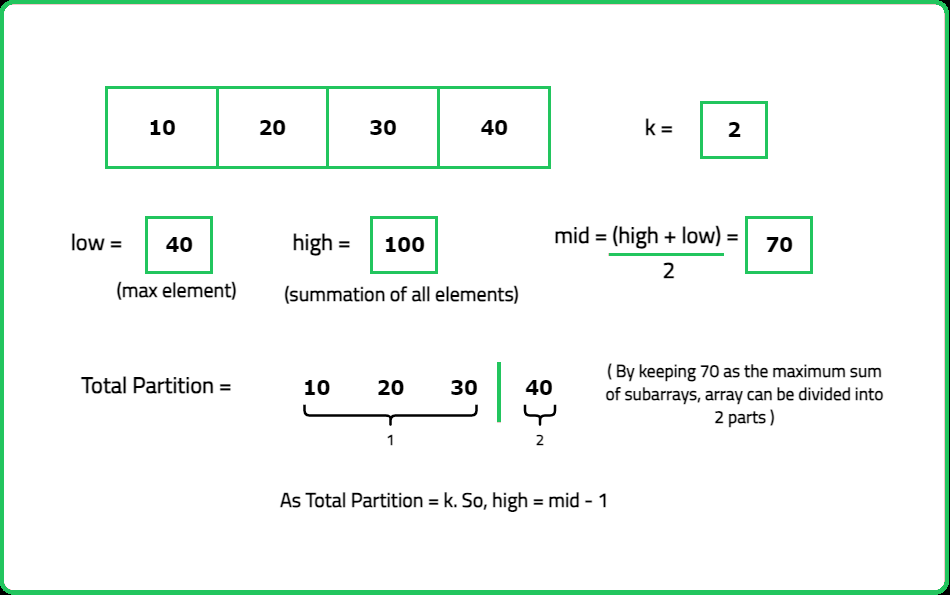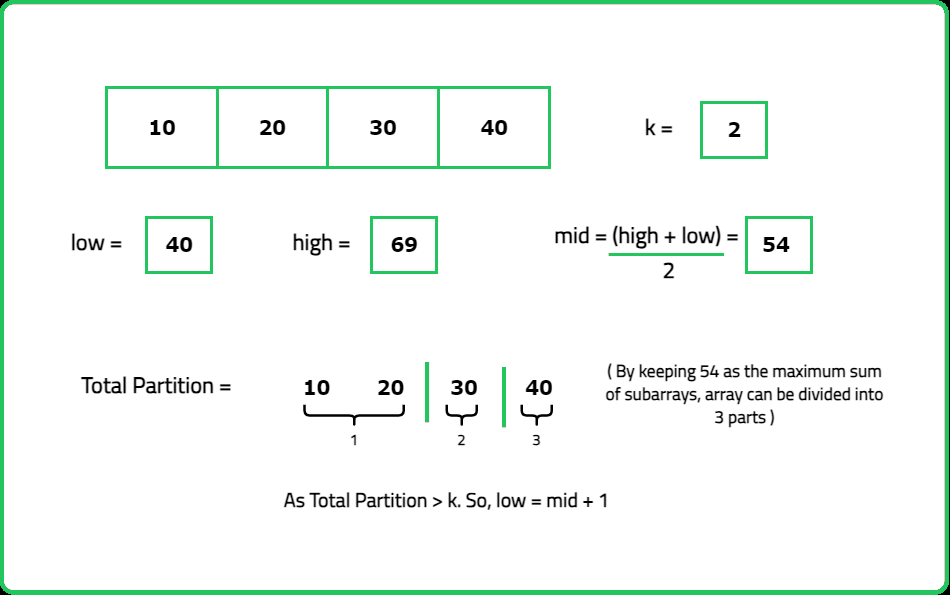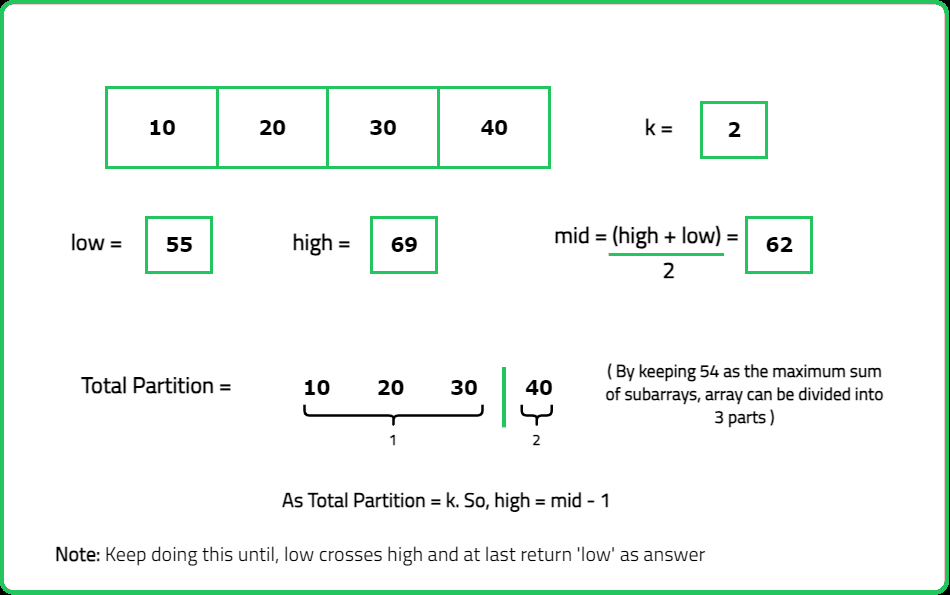Split array - largest sum
Binary Search
FAQs
Hard
- This problem reflects a practical problem in load balancing concept in distributed computing
- A common task in managing a distributed system is distributing workload evenly across machines
- This is a form of the problem where each machine is a subarray and the load is represented by the sum of the elements in the subarray
- For optimum load balancing, the goal is to minimize the largest sum across all machines
- This is necessary to ensure no single machine is overwhelmed with too much work while others are idle, thereby maximizing system efficiency and performance
Given an integer array a of size n and an integer k. Split the array a into k non-empty subarrays such that the largest sum of any subarray is minimized. Return the minimized largest sum of the split.
Examples:
Input: a = [1, 2, 3, 4, 5], k = 3
Output:6
Explanation: There are many ways to split the array a[] into k consecutive subarrays. The best way to do this is to split the array a[] into [1, 2, 3], [4], and [5], where the largest sum among the three subarrays is only 6.
Input: a = [3,5,1], k = 3
Output: 5
Explanation: There is only one way to split the array a[] into 3 subarrays, i.e., [3], [5], and [1]. The largest sum among these subarrays is 5.
Input: a = [1, 2, 3, 4, 5], k = 2
Constraints
- 1 ≤ n ≤ 104
- 1 ≤ k ≤ n
- 1 ≤ a[i] ≤ 104
Hints
- Use binary search to find the smallest possible value of the maximum subarray sum.
- "If mid is feasible (subarrays can be formed with a maximum sum ≤mid), search for a smaller maximum sum (high=mid). If mid is not feasible, search for a larger maximum sum (low=mid+1)."
Company Tags
Siemens Healthineers
Splunk
Airbnb
Optum
Ernst & Young
Robinhood
Reddit
Seagate Technology
Roche
Rockstar Games
Alibaba
AMD
Walmart
MongoDB
Rakuten
Qualcomm
GE Healthcare
Etsy
Deloitte
Electronic Arts
IBM
Epic Games
Broadcom
NVIDIA
Freshworks
Google
Microsoft
Amazon
Meta
Apple
Netflix
Adobe


